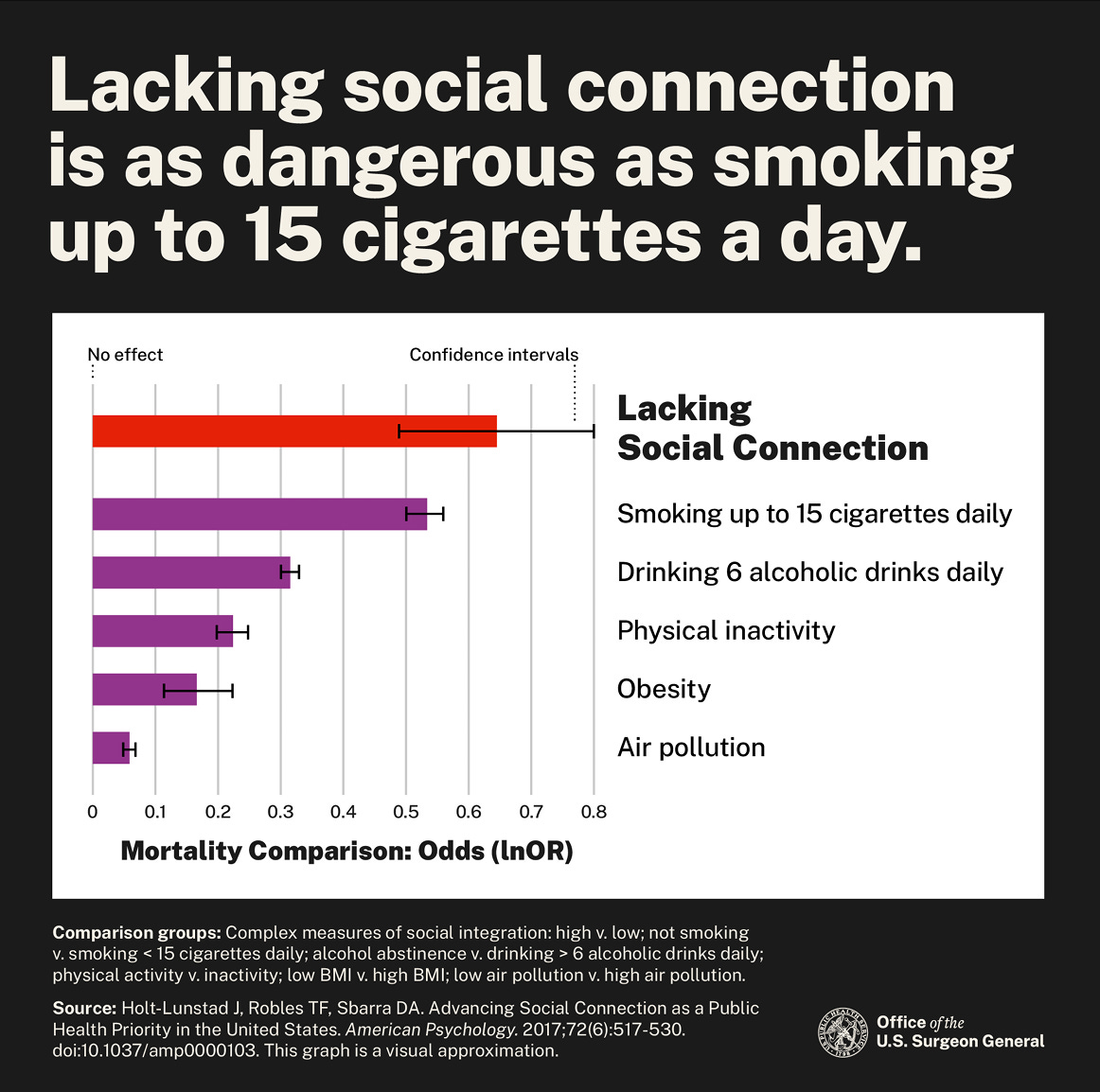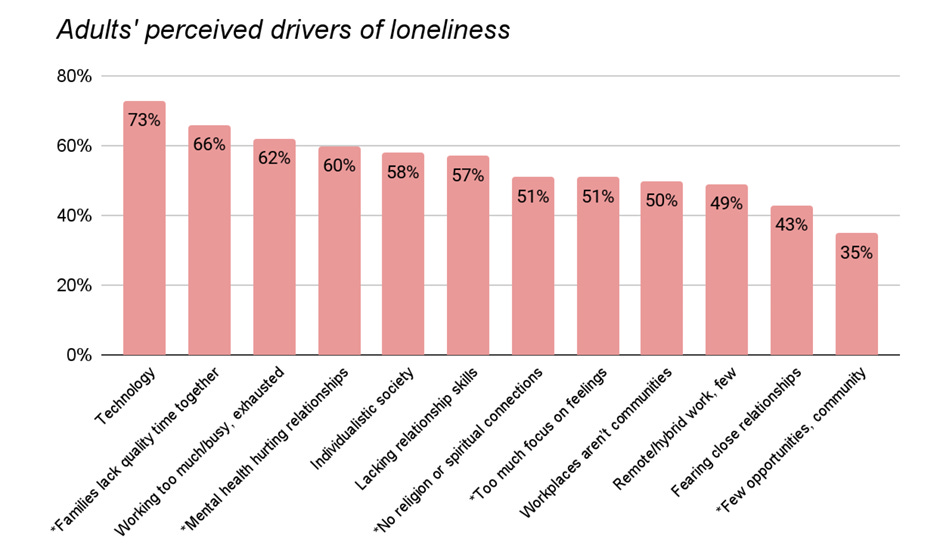"If I disappeared tomorrow, would anyone notice?"
That’s what people told the U.S. Surgeon General, Dr. Vivek Murthy, on his listening tour across America. It wasn’t a rhetorical question. It was a cultural diagnosis.
Half of adults report feeling lonely. The impact on health? Equal to smoking 15 cigarettes a day. Higher risk of stroke, dementia, depression, anxiety. Even early death.
But if we stop there, at stats and sadness we miss the point.
According to new research from Harvard, loneliness isn’t the root problem. It’s a symptom. The tip of an emotional iceberg built on anxiety, lack of purpose, and the quiet fear that we no longer matter to the world.
This isn’t about being alone. It’s about not being seen.
The Midlife Male Crisis
The Guardian’s July 2025 piece on midlife male friendships further highlights where we are as a society.
“We’ve been trained not to need each other,” said one man.
Another: “I’ve got mates, yeah. But I’m not sure I have friends.”
Men in their 30s, 40s and 50s are especially vulnerable. We let friendships decay under the pressure of work, family, and unspoken rules. We’re supposed to cope. To graft. To be the rock.
The result? We hide.
Increasingly, we scroll.
The data backs it up:
29% of 30–44-year-olds report frequent or constant loneliness.
60% say their insecurity or mental health gets in the way of connection.
57% don’t feel able to share their true selves.
63% feel their place in the world isn’t important.
This isn’t about not having mates for the pub. It’s about feeling fundamentally unseen, unneeded, irrelevant.
So it’s no surprise that 73% of Americans point to technology as the top driver of loneliness. The same technology that promised connection is now one of the main reasons we feel cut off.
But it’s not the only factor.
Longer work hours.
The collapse of religious communities.
Exhaustion.
All of it leads to adults spending more and more time alone.
Loneliness Has Layers
We tend to treat loneliness as a social issue: too few friends, too much isolation. But the Harvard report forces us to look deeper.
They break it down into two types:
Social-Emotional Loneliness: lack of meaningful friendships, groups, or close family ties.
Existential Loneliness: a sense of disconnection from the world and your place in it.
Both matter. Both are rising. And both are tied to a deeper crisis: the loss of meaning.
“When we talk about loneliness, what we’re really talking about,” wrote Matt Shaer in the New York Times, “is alienation, anxiety, distrust, and the collapse of the social structures that once held us together.”
I’ve felt that too.
I’ve been in rooms full of people and felt completely alone.
I’ve also spent days solo on a hiking trail and felt nothing but peace.
Loneliness isn’t about company. It’s about connection. It’s about meaning and belonging.
How Do We Fix It?
No essay, think tank report, or viral post is going to fix this.
No one’s coming to save us.
But almost everyone agrees on one solution:
Reach out.
Every day.
A message.
A call.
A walk.
83% of people say this helps with loneliness.
75% say helping others is a powerful antidote.
80% say learning to love themselves is part of the cure.
We often think we’re the only ones feeling like this. But we’re not.
My Reflection
I’m not writing this from a place of mastery. I’m writing this because I’ve felt it too.
There have been weeks and months where I haven’t made any effort with good friends. It’s never about them, but always about how I’ve convinced myself I didn’t need connection or that I was too busy for it. Times I’ve mistaken isolation for strength.
But when I step back, I see that I function better when I have people to walk with, talk with, laugh with, build with. Not just casual mateship but real, mutual, honest connection.
We’re told to chase productivity, independence, self-sufficiency.
But maybe what we need is time together.
Time unoptimised.
Time to feel like we matter not for what we do, but for who we are.
If you feel the pull to spend time with real people in nature. With other men that want to connect and leave behind the pressures of daily life, consider joining a Stronger Without event.
Or even simpler, reach out to an old friend and send a text.
I’m trying to get better at reaching out. Not because I’m failing.
Because I’m human.
And humans need humans.
If this landed with you, maybe now’s a good time to text someone.
Not because they’re lonely.
Because we all are, sometimes.
Further Reading:






